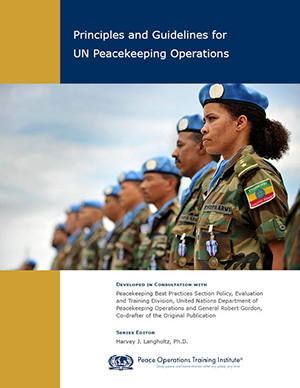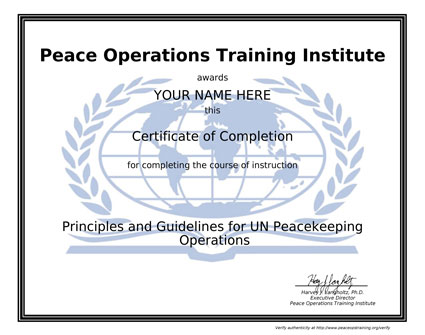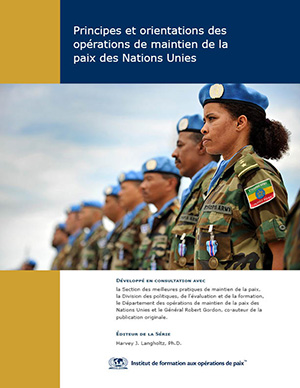This course has been developed in consultation with the Peacekeeping Best Practices Section of the UN Department of Peacekeeping Operations’ Policy, Evaluation and Training Division. It is based on the internal DPKO/DFS publication entitled United Nations Peacekeeping Operations: Principles and Guidelines, which is more widely known under its informal name Capstone Doctrine. This publication is a comprehensive document that defines and promulgates available peacekeeping doctrine, definitions, procedures, and policy. In ten chapters, it introduces the concept and evolution of UN Peacekeeping, explains the decision process that precedes the deployment of a peacekeeping operation, and then the planning process to implement that decision. It also discusses the art of successful mandate implementation and addresses the management of peacekeeping operations, how operations are supported and sustained, and how they are concluded at their termination. The Institute course Principles and Guidelines is designed to teach this DPKO doctrine to all UN personnel serving in the field and at Headquarters, as well as to those who are new to UN peacekeeping. Ten chapters.
Nombre de pages: 208 [Anglais]
Editeur: Institut de formation aux opérations de paix (POTI) [09-11-2010]


